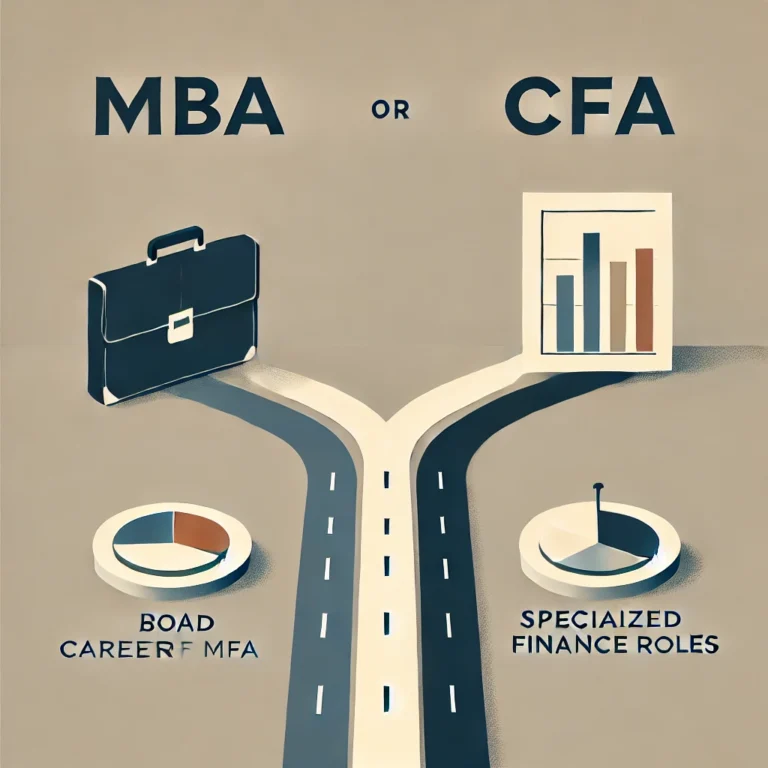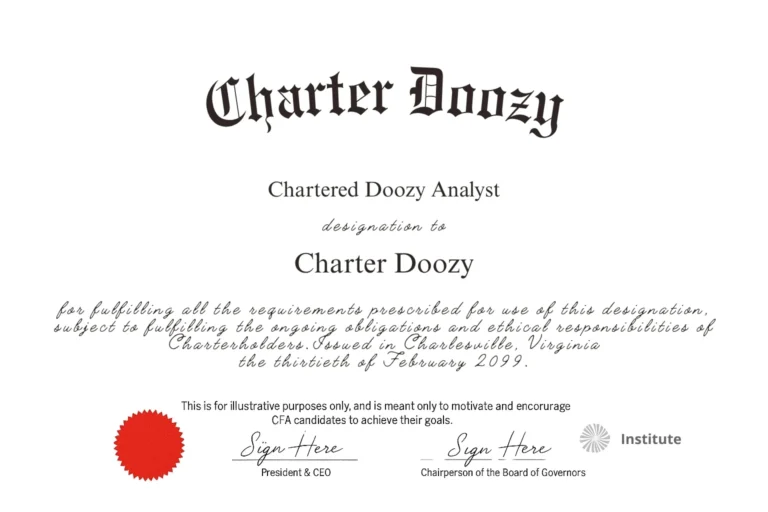The Fork in the Road: MBA vs. CFA
At the crossroads of your career, you’re confronted with a choice: MBA or CFA? It’s a dilemma that many professionals in the financial services and investment industry face, especially those in their prime working years. You’ve been burning the midnight oil, balancing a full-time job with CFA studies, and now you wonder whether an MBA might be the missing piece in your career puzzle.
Both paths offer distinct advantages, but which one is truly worth your time, effort, and investment? In this article, we’ll dive deep into the CFA vs. MBA debate, unraveling the complexities and helping you determine the best course for your unique circumstances.
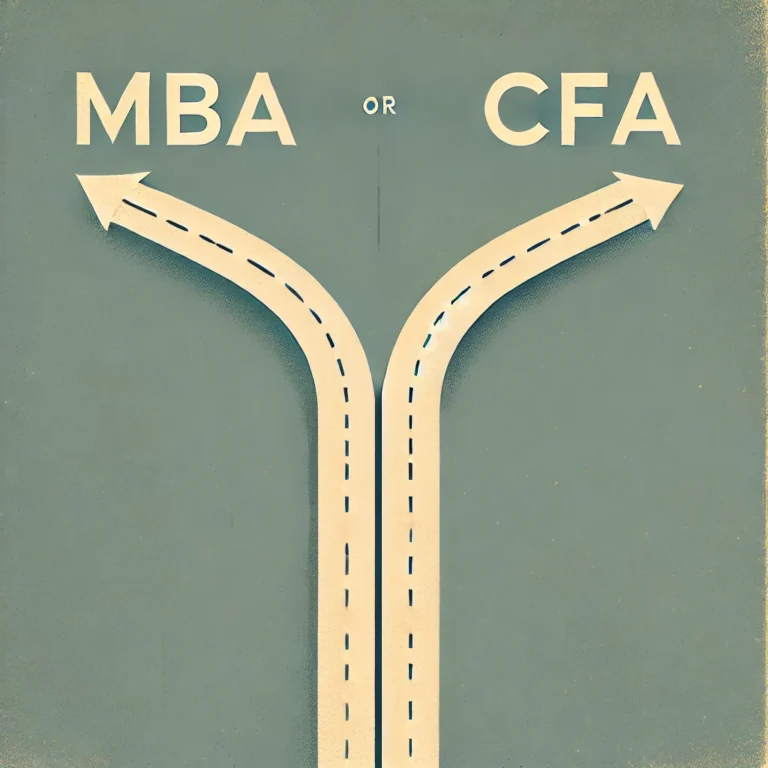
Understanding the MBA: Broadening Your Horizons
What is an MBA?
The Master of Business Administration (MBA) is a graduate-level degree designed to equip professionals with a comprehensive understanding of business management. MBA programs typically cover a broad range of subjects, including finance, marketing, operations, and leadership. The degree is often considered a passport to executive roles, providing a holistic view of business operations and strategic thinking.

Who Should Consider an MBA?
An MBA is ideal for those who aspire to leadership positions within their organization or those who seek to pivot into a different industry or function. It’s a degree that emphasizes versatility, making it a great fit for individuals looking to broaden their skill set and open doors to diverse career opportunities.
The ROI of an MBA
The ROI (Return on Investment) of an MBA can be significant, particularly for those who graduate from top-tier business schools. Graduates often see substantial salary increases and have access to an extensive alumni network that can be invaluable for career advancement. However, the cost of an MBA—both in terms of tuition and the opportunity cost of time away from work—can be daunting.

The MBA Experience: More Than Just Academics
An often-overlooked aspect of an MBA is the experience itself. Business schools are melting pots of diverse ideas and perspectives, where you can build lifelong relationships and develop soft skills like negotiation and public speaking. The immersive environment encourages collaboration, critical thinking, and exposure to real-world business challenges through case studies and group projects.

Unpacking the CFA: A Deep Dive into Finance
What is a CFA?
The Chartered Financial Analyst (CFA) designation is a globally recognized certification for investment professionals, focusing primarily on financial analysis, portfolio management, and ethical standards. The CFA program is known for its rigor, with three levels of exams that require a deep commitment to studying and mastery of a broad range of finance-related topics.
Who Should Pursue a CFA?
The CFA is particularly well-suited for professionals who are deeply entrenched in the investment world—think asset managers, equity analysts, and financial advisors. If your career is centered around the intricate workings of financial markets and you have a passion for dissecting financial statements, managing portfolios, or understanding the nuances of financial instruments, the CFA could be your golden ticket.
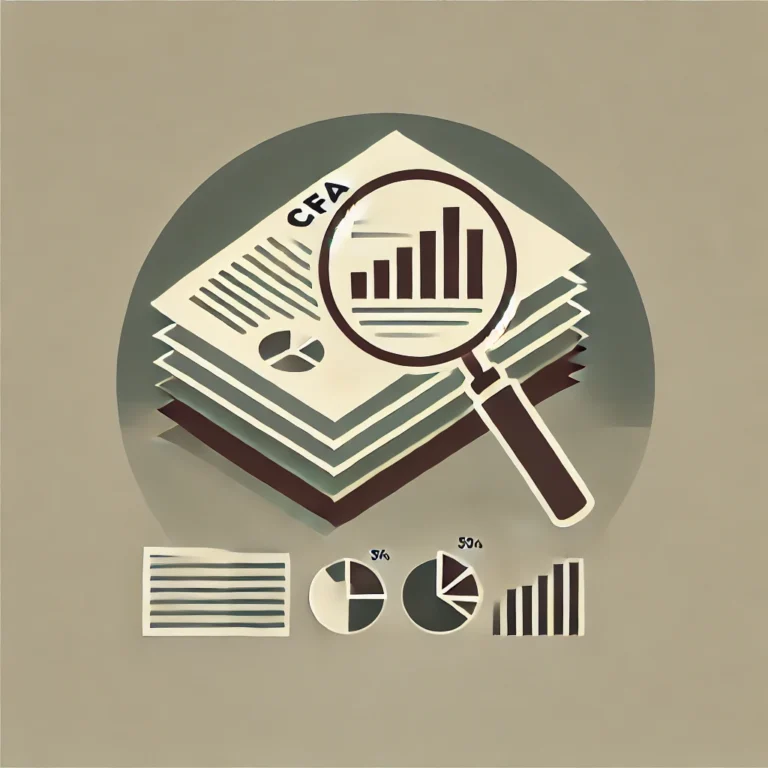
The ROI of a CFA
While the CFA doesn’t come with the hefty tuition fees of an MBA, it does demand an extraordinary amount of time and effort. However, the ROI can be substantial in the form of enhanced credibility, global recognition, and access to higher-paying roles in the finance industry. Employers value the CFA designation for its emphasis on practical skills and ethical standards, making CFA charterholders highly sought after in the job market.
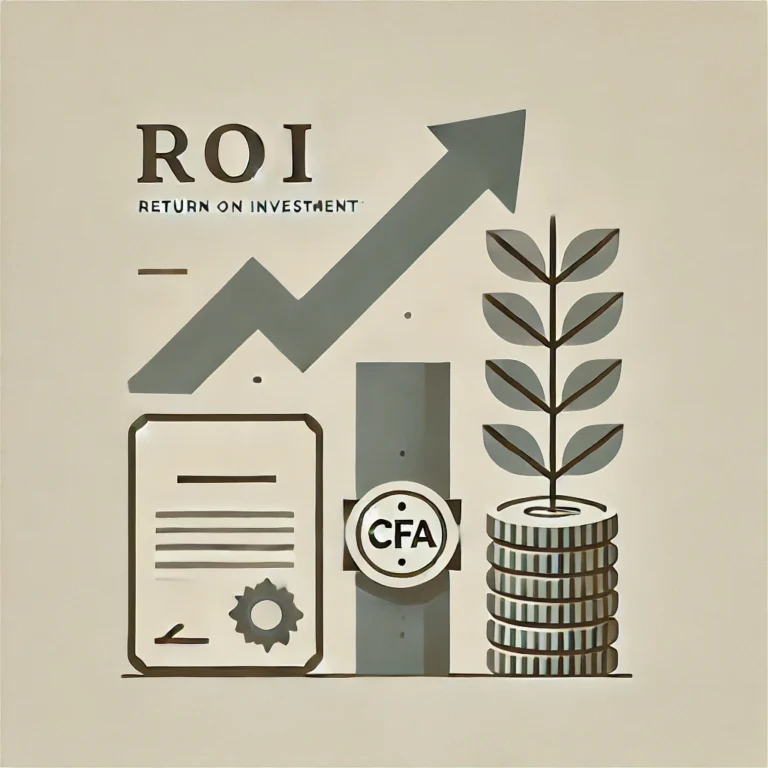
The CFA Experience: A Test of Endurance
The CFA journey is often described as a marathon rather than a sprint. The self-study nature of the program requires immense discipline and resilience. Unlike the collaborative environment of an MBA program, the CFA is a solitary endeavor where success hinges on your ability to manage time effectively and stay motivated through rigorous study sessions.
Doozy Digest
A newsletter for CFA candidates
Subscribe for:
✔ Insightful tips
✔ Expert advice
✔ Career motivation
✔ Exam inspiration
Stay updated and subscribe today!
Comparing MBA and CFA: A Head-to-Head Analysis
Scope and Curriculum
The scope of an MBA is broad, covering a wide array of business disciplines. It’s designed to produce well-rounded business leaders who can navigate multiple facets of an organization. In contrast, the CFA is laser-focused on finance, offering in-depth knowledge of investment management and financial analysis.
Career Impact
An MBA opens doors to executive roles across various industries, making it a powerful tool for career changers or those aspiring to climb the corporate ladder. The CFA, on the other hand, is highly specialized and is best suited for those committed to a career in finance, particularly in roles that require a deep understanding of investment analysis.

Time and Financial Commitment
An MBA typically requires a significant financial investment, especially if you’re targeting a top-tier program. The opportunity cost of taking time off work can also be considerable. The CFA, while less expensive, demands a substantial time commitment—often several years of rigorous study, depending on how quickly you progress through the three levels of exams.
Network and Opportunities
One of the key benefits of an MBA is the access to a powerful alumni network that can open doors to new opportunities. The relationships you build during an MBA program can be invaluable for career advancement. While the CFA does not offer the same level of networking opportunities, it does provide a global community of charterholders who share a common language in finance, which can be incredibly beneficial in the finance industry.
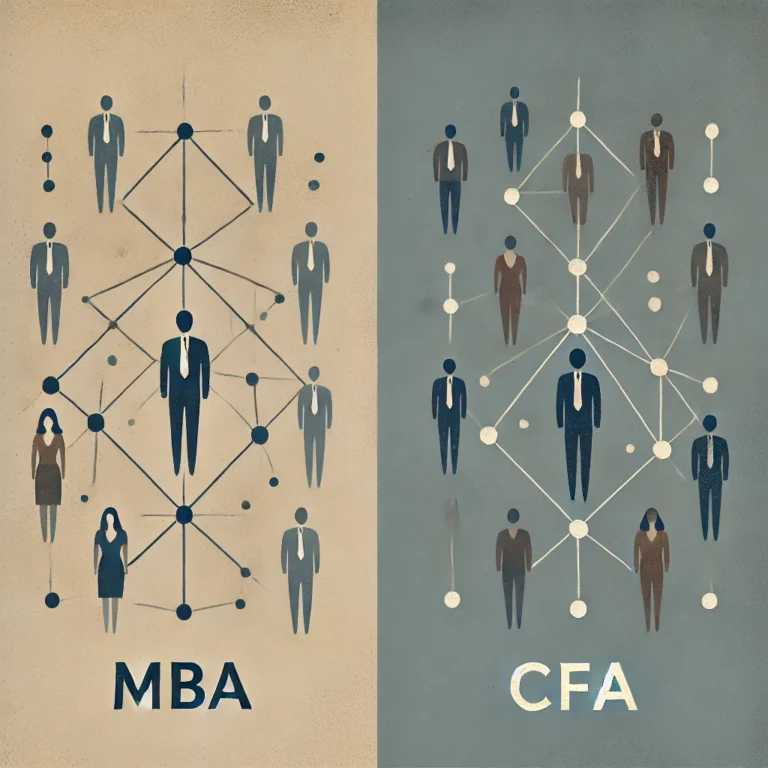
Real-World Scenarios: When to Choose an MBA Over a CFA (And Vice Versa)
Scenario 1: The Aspiring Executive
You’re 32 years old, working as a mid-level manager in a financial services firm. You have a solid foundation in finance, but your career aspirations lie in senior management or even a C-suite position. While the CFA would certainly deepen your financial expertise, the broad-based education and leadership focus of an MBA might be more aligned with your goals. The MBA’s emphasis on strategic thinking, operations, and leadership would prepare you for the multifaceted challenges of executive roles.
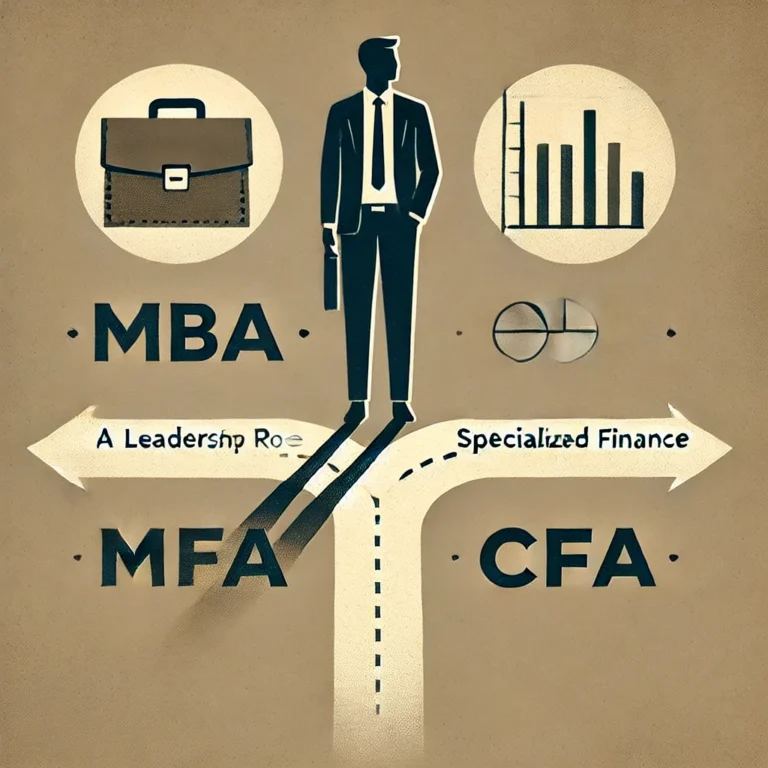
Scenario 2: The Finance Specialist
You’re 28 years old, with a strong interest in equity research and portfolio management. You’re already enrolled in the CFA program and have passed Level I. Your passion lies in financial analysis, and you’re eager to become an expert in this field. In this case, doubling down on the CFA might be the better choice. The CFA’s rigorous curriculum and global recognition would enhance your credibility and career prospects in specialized finance roles.
Scenario 3: The Career Changer
You’re 35 years old, currently working in marketing but looking to transition into a finance role. An MBA would provide you with the broad-based knowledge and credentials needed to make a successful career switch. The exposure to finance, combined with other business disciplines, would make you a well-rounded candidate for finance roles, giving you the flexibility to pivot into various sectors.
Final Thoughts: The Power of Alignment
Choosing between an MBA and a CFA is not just about comparing costs, time, and potential salary increases—it’s about aligning your educational path with your career goals. The decision ultimately hinges on where you see yourself in the next 5 to 10 years. Do you aspire to lead teams, manage entire business units, or pivot into a new industry? Or do you see yourself as a finance specialist, diving deep into investment analysis and portfolio management?

If you’re someone who thrives in a broad, collaborative environment and aspires to leadership roles, an MBA might be the key to unlocking your full potential. On the other hand, if you’re passionate about finance and committed to mastering the complexities of investment management, the CFA will offer you the depth and recognition you need to excel.
Whichever path you choose, remember that your success will be defined not just by the letters after your name, but by the knowledge, skills, and relationships you build along the way. In the end, the best investment is the one that aligns most closely with your professional aspirations and personal values. So, take a step back, reflect on your career goals, and choose the path that will propel you toward the future you envision.
